Christian Doppler’s important patrons during his lifetime
It seems that Doppler’s first two teachers and patrons in Salzburg and Vienna, the mathematician Adam Burg and the geodesist Simon Stampfer, later found their counterparts in the mathematician Bernard Bolzano and the meteorologist Karl Kreil, his patrons and friends in Prague.
All four of these people were at Doppler’s side with understanding and help until the end. Doppler’s simultaneous relationship with two contrasting personalities once again demonstrates the intellectual vigour of Christian Doppler and the extent to which he was able to combine productive and reflective thinking in his innovations.
The philosopher Franz Exner, whose deep friendship with Doppler certainly contributed to his feeling of acceptance not only in Prague society but also later as a professor in Vienna, would support him there, especially in the controversy at the Academy, and travel with him to Italy in 1852, both already terminally ill, from where the two friends were never to return.
Adam Freiherr von Burg
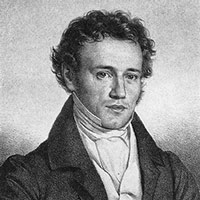
In his acceptance speech on his 80th birthday, Adam Freiherr von Burg mentioned Doppler as one of his students who had completed his lectures with honours and had also achieved outstanding, highly respected positions in life. »mehr
Simon Stampfer
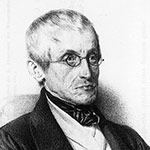
His meeting with Christian Doppler is one of the great strokes of luck in the history of science and its significance for the development of this student’s talents and interests can hardly be overestimated. »mehr
Bernard Bolzano

This philosopher and priest – one of the greatest logicians of all time – was fascinated by Christian Doppler’s speculative method, which was quite unusual in physics at the time and seemed similar to his thinking in mathematics. »mehr
Karl Kreil
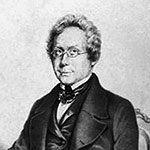
This founder of the great tradition of Austrian meteorology and geomagnetism wrote an unusually laudatory tribute to Doppler in the journal Österreichische Blätter für Literatur und Kunst in 1845. »mehr
Franz Exner
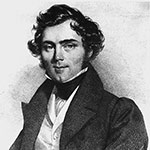
Christian Doppler immediately felt at home in his hospitable house on the Roßmarkt in Prague and made important acquaintances – such as Father Schneider, Robert Zimmermann, Franz Palacky and Count Thun-Hohenstein. »mehr
Christian Doppler’s most important opponents during his lifetime
“No innovation prevails without resistance. Indeed, in the end it must be said that the less resistance the new finds, the faster it rushes to obsolescence itself,” said Hans-Georg Gadamer in his speech at the opening of the Salzburg Festival in 1981. Few innovations have travelled a longer path than those brought to us by the Salzburg physicist Christian Doppler. In addition to a poor understanding of the history of science, Doppler’s opponents, who were still unfamiliar with the new thinking of modern physics, played a particular part in this.
Doppler’s opponents during his lifetime were, like his supporters, among the most important personalities in their field in the natural sciences. This is precisely why the controversies between them and Doppler are of such great interest, as they helped to clarify the significance of Doppler’s work.
Analysing the controversy, which lasted around half a century, would therefore be a revealing task. It would provide further concrete facts for Thomas S. Kuhn’s discussions on the paradigm shift.
Jakob Philipp Kulik
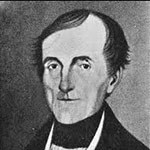
This Prague professor of advanced mathematics criticised Doppler, saying that in his essay he had fallen into the error of some more recent mathematicians, who were unable to get to the point of the matter itself because they were so busy explaining it. »mehr
Heinrich von Mädler
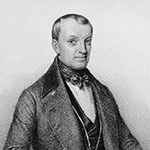
This prominent astronomer wrote a review in 1843 that was so devastating for Doppler that he wrote a sharp retort, which was only published in the journal Österreichische Blätter für Literatur und Kunst in 1844. »mehr
Josef Maximilian Petzval
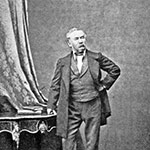
It is a strange coincidence that on 6 November 1901, Petzval’s monument was unveiled in the arcaded courtyard of the University of Vienna together with that of Christian Doppler, whom he had fought so fiercely against during his lifetime. »mehr
Text: Dr. Peter M. Schuster

